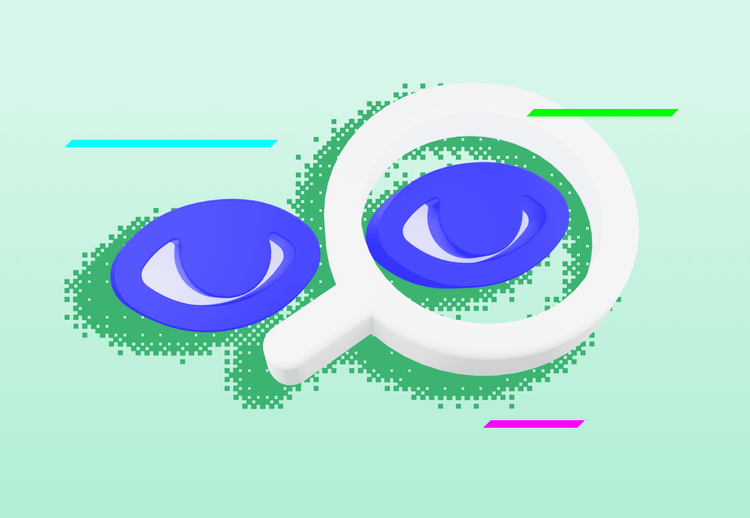Jakub Baierl: I Started with Sweeping the Floors, Now I Lead a Platoon of Cleaners

Interview Not Only about Frontend
As a chief webmaster, Jakub Baierl is in charge of the whole frontend team. But when he's not coding, he lives for music. In the interview, he talked about the future of applications and also his stellar career.
How did you get to the frontend and Ackee?
I would say that the primary impulse for focusing only on frontend was my previous work with Tomáš Řehák in the legendary tile factory Bubenská 1. Besides Java, I also did some side frontend projects thanks to him, and I have enjoyed it. And then I came to Ackee, where I will celebrate my 6th year soon.
Do you remember your beginnings at Ackee? And how has your work changed during those years?
Well, I think I started with sweeping the frontend floors. :D
Haha, frontend was a different thing back then, wasn't it?
It was different little things. I remember doing map corrections or aligning items in the e-shop. I changed colours and stuff. But now I lead the whole team that fixes the items and colours, which is pretty cool.
So now you lead the whole platoon of cleaners? :D
Exactly, it's quite a good euphemism. We get much bigger projects than we had before. Back then, there were smaller things that we didn't choose so much from. Currently, these are contracts for giant clients like Livesport, which is a big difference. We no longer do such unusual projects as before.
What does the teamleadering entail?
First of all, I make sure that everyone on the team is happy. Everyone has to have enough work to do, but also such work, which they enjoy in some way, they are good at, or it can further develop them. It's a lot about constantly "shuffling" people on projects. Finding out how they feel about it. Sometimes I'm kind of a mom. 😀 To feel good, one has to move somewhere over time. Therefore, it is necessary to consciously or subconsciously offer them some things in which they can realise themselves. And I'm here to handle it. With everyone differently, but we always come up with something.
Can you tell me what you are working on at the moment?
We currently spend most of the time on FlashSport and FlashNews. But besides that, I would mention the application for In-Počasí, a company we have been cooperating with for a long time. It is one of the most downloaded Czech weather apps that we make in React Native. And I definitely shouldn't forget to mention many internal projects – for example, our Passwd password manager, invoice management system Expenses or our open source. If you are more interested in how we work, you can take a look at our team cookbook.
And how do you proceed when you occasionally can't deal with something?
If I can't get a solution for a long time – which I always take as my personal loss – I usually ask others on the team. Sometimes I turn to the backend, and I often go to Mr. Šmoldas. I convince myself that I should involve my head first. But sometimes it doesn't work, and I press Command + Tab and Safari and go. 😀
Besides this personal challenge of yours, can you think of some hard-to-grasp project?
At the very beginning, it was probably every project, because I didn't know anything about it. Nobody knew anything. Even Google didn't know how to do it. That was very crazy, but we managed it.
From the present, I would like to mention Prague Airport Taxi. It is an app written in React Native. It was a challenge because it's a huge app. We had to integrate many functions there, and mainly, we started writing it in hybrid form. We're still finishing it, but it's already working.
There is also one project – a geocaching application for a Škoda – where we had to develop a desktop app for an onboard computer in a car. It works a little differently there. We did it in Angular. We don't normally write in that, but it was similar to React, our natural habitat, so we managed to deal with it.
Apart from working on new projects, where else do you develop and get inspired?
I currently draw the most inspiration from my team. Everyone follows various trends and news, which we share together at a meeting once a week. I read Medium, sometimes I watch some recordings of meetups or talks on YouTube. Last year I was able to perform on two and since then I have been consuming news from the frontendists who were there. I check Twitter from time to time, when someone sends me a link, I don't go there by myself. Or I take courses for example at Egghead.
And what do you consider as a trend today?
It very much depends on the specific application. There are a lot of trends, whether it's technologies like GraphQL or TypeScript. They have been here for a long time, but everyone is gradually adopting them. At the moment, for me the main thing is to make an app (and maybe it's because I'm older and I have grown up), which works properly and was developed in a decent time. And above all, to be sustainable and to last at least a year or a few years and to operate independently. I would say that making quality applications without incorporating a billion new technologies but being usable will now be the most significant trend.
That sounds great – sustainability is the future in every field now, I guess.
We talk about it a lot on the team now, and it is one of our biggest goals. Make the apps so that someone doesn't pull their hair out when they get to them a year after. We try to keep the development using modern technologies, but we do not try to put something new and new there all the time.
Let's move onto more technical questions. In your frontend beginnings, being a web developer meant CSS and HTML coding. Today, web applications are separate from the backend and communicate via API. What else do you think has changed so radically?
I would say that the most radical change is in thinking about how the app is being created and working with data. Today, you have to request information that you may have obtained from a database, via the API. And in that asynchronous operation, when you don't want to get them right away, you have to deal with the exact moment you want them to apply – when the page refreshes, one clicks on something, or after ten seconds? It's about some logical thinking, you have to store it somewhere. Whether in its own cache or the browser's memory. There are so many operations that went through the backend before that you have to think all through in advance.
In small applications (for example, when I call for what the weather is like) it's cool. But when it's a great app you've been working on for a year, there are a billion things you have to call for. And if you do it wrong at the beginning, sooner or later it will fall on your head. Styling is still part of it, but what used to be 90 % of the workload is now 30 %. Of course, all frontenders have to code, and I think most of them enjoy it, it's just not the only part of our agenda.
A lot of people today talk about progressive web apps. As a webmaster, do you see them as a substitute for native applications?
No, I see it as something else, a different direction. There are many articles about PWA replacing native applications, but I think it's bullshit and it's just another buzzword. It's something extra that web technologies offer, but it doesn't replace desktop apps. You can make an application that you can put on your dashboard, but it certainly won't be a trend for everyone to drop native apps and write them in JavaScript.
However, it's a great thing if you are a web developer and have knowledge of Javascript. You can make an application that you run on your mobile, and you get it on people's desktop, offline – just to make it look like it's native. And that's great because you can do it with your own hands. Remake the web app into a mobile app. However, this is something that webmasters can do from the beginning because they make responsive websites. But PWA is something that will allow you to transform the mobile version of the website so that it looks like a native app.
Do you believe in a server-side render, or is it better to render the frontend on the frontend?
As a webmaster, I believe in both. It depends on the use case, but the DevOps guys have a problem with that, and they have forbidden us to do it because it requires a lot of resources on the server. But I hope that all the major search engines will make some of their logic public over time. How they draw and crawl data from the web because it is a black box for us with most search engines.
What did you learn at Ackee during your time here?
To handle a lot of new technologies and approaches to this new frontend. Anticipate the people who will feel happy with us. I make a really good estimation of what they will enjoy at work, and I would say that I can inspire them to want to work on a project or improve in something. I think I can do that. I would add the ability to estimate the right technology to use or not to use somewhere because I've tried many of them over the years.
I would also like to know why you are sitting among the designers. Is it again because the frontend is very close to design today?
Well, I was sitting at that table first. :D I mean Roman and me, so there was only one designer. You should be asking why are people sitting with me. Otherwise, I have the best friends among them. I'm also used to the web being created mainly by design, and it's nice for me to be in touch with it from the beginning. When I need to ask how something should work or look, I just turn over my shoulder and I can work with it right away. If I had to go after them, I would just wave my hand over it and do it my way. 😀
And what do you do when you're not coding?
I currently devote all my time to the music. We just released a record. During my time in Prague, I have been in many different bands, but I decided to write my own album last March. I got together with Roman, who does all the design and writes most of the lyrics. So you could say that we made a Vršovice duo from Ackee, where we met six years ago.
How do you manage a time combination of work and stellar career?
Sleep is for the old. 😀






